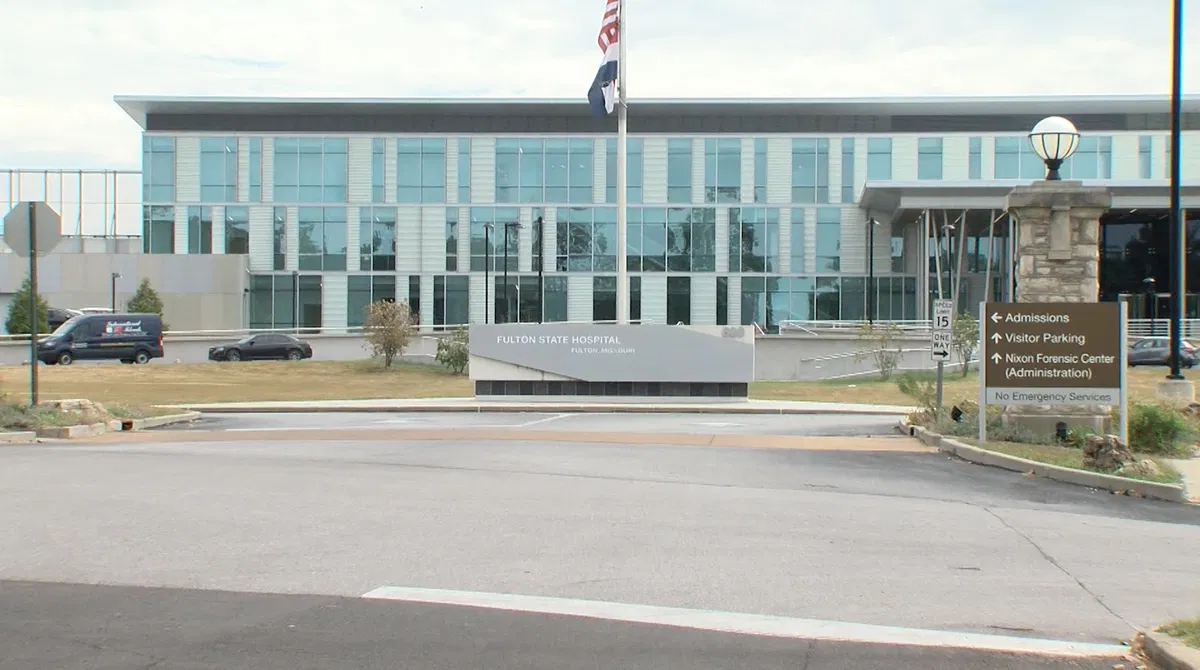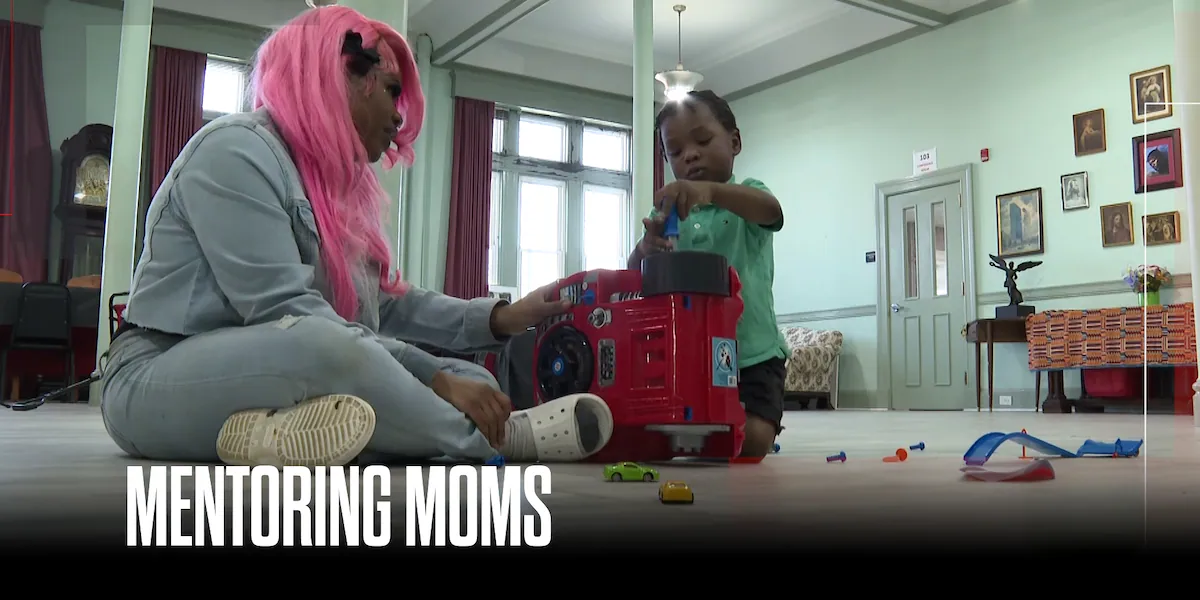
COLUMBIA, Mo. (KMIZ)
The Sixth Amendment to the U.S. Constitution states that people accused of crimes have the right to a fair and speedy trial. But for those waiting for state-mandated mental health treatment before trial, speedy isn’t always the case.
Jeanette Simmons, deputy director of the Missouri Department of Mental Health, said around 500 people have been deemed incompetent to stand trial and are waiting for a bed with the department. Two years ago, the number was just below 300, according to previous reporting.
Another 191 people in Missouri are waiting to get evaluated.
“If somebody were ordered today and for a bed, absent extenuating circumstances, they would wait about 14 months for that bed,” said Simmons. So far this year, the department has completed 1,169 pretrial evaluations, an increase from 972 the year before.
Sitting inside the Boone County Jail are eight inmates waiting for a mental health evaluation, and 20 are waiting for a bed to open up with DMH. There are also eight Boone County inmates at a DMH facility receiving services so they can become competent to come back to the jail to await trial.
Currently, there are no beds available in the three DMH facilities designated to provide competency restoration and treatment (Forensic Treatment Center in St. Louis, Center for Behavioral Medicine in Kansas City for lower-level non-dangerous felony charges and Fulton State Hospital for dangerous felony charges and higher security) across Missouri, leaving detainees sitting with the question: “How long will I be here?”
“We had a detainee that first came into our facility in 2021, and it was in the last two weeks that they went to the Department of Mental Health for a bed. Now, during that process, they did go to the Department of Mental Health once,” said Capt. Brian Leer with the Boone County Sheriff’s Office. “But we’re talking from early 2021 until fall of 2025, and this person’s case is still not disposed of.”
Multiple cases ABC 17 News has been following are at a standstill due to the backlog.
In Columbia, Demetrice Tatum is accused of murder in connection with the deadly stabbing of another man in a central Columbia park in April 2024. In December, Tatum was deemed incompetent to stand trial after his lawyers requested a mental evaluation in July 2024. Online court records from Sept. 22 say Tatum was No. 48 on the bed list for Fulton State Hospital. A mental health status hearing is set for Jan. 12, 2026.
Getting help
If you or someone you know needs mental health services, Simmons says reaching out to your community health agency is a good step to connect with local resources.
In Cole County, that would be Compass Health, and in Boone County, that is Burrell Behavioral Health. Both locations also serve as behavioral health crisis centers, according to Simmons.
The Missouri Psychiatric Center offers both short-term intensive inpatient treatment and outpatient treatment.
If you are unsure of which place to call, using the 988 Crisis Hotline will connect you to resources to help.
The lawyer for Emma Adams, the woman accused of killing a University of Missouri student and trying to burn his body in 2023, filed multiple motions to have her committed. Adams was committed to the DMH in November 2023, and was found unfit to stand trial in January. According to online court records, Sept. 25 was the deadline for DMH to give her evaluation report to the court. Her next court hearing is Oct. 14.
Another case in limbo in Boone County is Steven Strumpf, the man accused of arson and the murder of his father. Court documents in previous reporting say that on Jan. 19, 2024, firefighters discovered a body under debris in a garage on Deerfoot Way. They found the body later when looking for hot spots. He allegedly admitted to stabbing the victim multiple times and setting the body on fire, court documents in previous reporting say.
According to court records, a mental evaluation was granted for Strumpf in May to see if he is competent to stand trial. That was filed Aug. 22, and there have been no new developments since. His next hearing is set for Oct. 14.
How the mental evaluation process works
“If somebody is presenting with signs of mental health issues, the statute dictates that a defense attorney, a prosecuting attorney, or the court itself, based on observations in court, if they’re suspected of having mental illness, somebody may not be competent to proceed with trial,” said Melissa Buchanan, first assistant prosecutor for Boone County.
This is when the court would order a mental health evaluation. From there, the Department of Mental Health has 30 days to conduct the evaluation.
“Our experience has been that the Department of Mental Health almost always asks for an extension, which the statute does allow for,” said Buchanan. “So then you’re pushing it out further where, more likely than not, in many cases, it will be maybe 60 days before the Department of Mental Health reports back to the court.”
If a person is deemed incompetent to proceed in court, DMH will file a report and send it to the courts. The court reviews and signs it so that the person can be ordered into the custody of DMH for competency restoration services like medication and therapy, so they can eventually proceed with the trial.
Buchanan says ideally, the person would be transferred from jail to a DMH facility relatively quickly after being deemed incompetent.
“The people in Boone County who have been judged incompetent are technically in the custody of the Department of Mental Health, but effectively staying in Boone County Jail for sometimes a year or more,” Buchanan said. “That’s really where, I think, the system breaks down in its current incarnation.”
Effects on jails
Some argue that jails in Missouri and nationwide are becoming the psychiatric hospitals of 2025, causing a strain on jail space, jail staff, money and other resources.
“We are literally buying coloring books and crayons and stuff like that to bring in to help these people do what they need to do,” Leer said. “I mean, it almost resembles a daycare type environment sometimes with the detainees, and I think everybody would agree that jail is not the place for that.”
The Boone County Jail has a full-time mental health professional and contracted medical and mental health staff to provide services to everyone in the jail who needs them. An out-of-state psychiatrist does video calls with detainees suffering from mental health illnesses once a week.
“There’s a lot of burden on the county jails when they have individuals who have mental health needs, and some of those medications, for example, are very costly,” said Simmons. “That’s a big burden on those county budgets.”
Leer says the jail sees higher incidents of mental health issues with the homeless population and those suffering from drug addiction.
The Boone County Jail typically has to segregate the mentally ill, using a jail cell meant for two to house just one.
“If someone is not going to be safe or be able to function in a housing unit with other people, we have to segregate them,” Leer said.
In turn, there is less space for other inmates in the jail, which causes the county to pay to house around 100 inmates in places such as Montgomery County, Randolph County and even Johnson County and the St. Louis area. Leer estimates the cost of housing inmates at other jails this year is around $1 million, but says that number could end up being higher.
Leer said the county doesn’t send dangerous prisoners to other counties. That leaves Boone County Jail staff to deal with the worst offenders, along with the mentally ill.
Leer also believes this issue plays a factor in staff turnover at the jail, as the jail has 12 vacant detention officer positions to fill and five control room officer positions.
“One of the things to it right now, the hardest place for us to staff is the jail,” Leer said. “I think a lot of that has to do with dealing with this exact issue, day in and day out, coming in, dealing with people who really the jail is not the place for them to be, they’re a detention officer who has to almost be a babysitter at times.”
Jail staff safety is also a concern at times. Mentally ill inmates have attacked staff, Leer said.
Buchanan says while jails can administer medication, they can not force a person to take it like the Department of Mental Health can, which can pose threats to the jail itself and its personnel.
“We have phones, we have fire alarms, we have sprinklers, we have showers and toilets, and they flood cells, they make messes that have to be cleaned up,” said Leer. “Then you talk about self-mutilation. There’s a lot of that that happens.”
People who work with the system agree that jail is not the right fit for a person suffering from a mental health issue, but there is no other option for them.
“You’ll see comments out on social media, you hear comments in public like, ‘Why is the sheriff holding them in the jails? That’s not a place for them.’ We don’t have that option,” Leer said.
Check back and watch ABC 17 News at 10 for the full special report.



